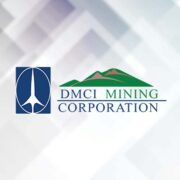Poor households aloof from power bill discount program
Barely one out of 20 households that may qualify for discounted electricity rates have signed up for this benefit, prompting the Department of Energy (DOE) to look for help in order to pull up the low number of registrants.
Luningning Baltazar, director of the DOE’s Electric Power Industry Management Bureau, said in a public briefing on Tuesday that as of December, only 191,399 out of the 4.2 million beneficiaries of the national government’s Pantawid Pamilyang Pilipino Program (4Ps) officially registered for the Lifeline Rate Program.
“On the part of the DOE, we’re now looking for another party that can help us study how we can further improve the implementation of the program,” Baltazar said.
The Lifeline Rate program is a socialized pricing mechanism set by the Energy Regulatory Commission (ERC) based on certain consumption thresholds. This was granted under the Electric Power Industry Reform Act of 2001.
The law previously allowed the implementation of the program for 10 years, but this was later extended until 2051 through Republic Act No. 11552 enacted in 2021.
The discounts granted for beneficiaries depend on the threshold levels implemented by their respective distribution utilities.
Among customers of the Manila Electric Co., for example, households that consume no more than 100 kilowatt-hours (kWh) of electricity a month are qualified to get discounts.
The adjusted rates are automatically reflected in the beneficiary’s monthly bill.
However, the DOE cited the lower thresholds in other areas as among the reasons why some target beneficiaries opted not to register for the program.
According to Baltazar, some distribution utilities in the Visayas only have a 25-kWh threshold for the Lifeline Rate program.
“The threshold needs to be approved by the ERC, and we need to determine the possible impact on our subsidizing customers,” she said. “We need a holistic approach in studying how we can implement this more effectively and encourage more beneficiaries to register.”
Baltazar added that, in some cases, households that are 4Ps beneficiaries share only one power meter. This increases their total monthly consumption, to a point that they would exceed the lifeline rate threshold.This was also among the issues that the DOE aimed to address in upcoming assessments, the official noted.
Last year, the DOE, Department of Social Welfare and Development, distribution utilities and various local government units jointly ran information campaigns across the country to encourage more 4Ps beneficiaries to register for the Lifeline Rate program.
Distribution utilities had conducted on-the-spot registration during these campaigns, and the DOE pushed them to push on with such efforts this year to ensure that more households would benefit from the program, Baltazar said. INQ
















